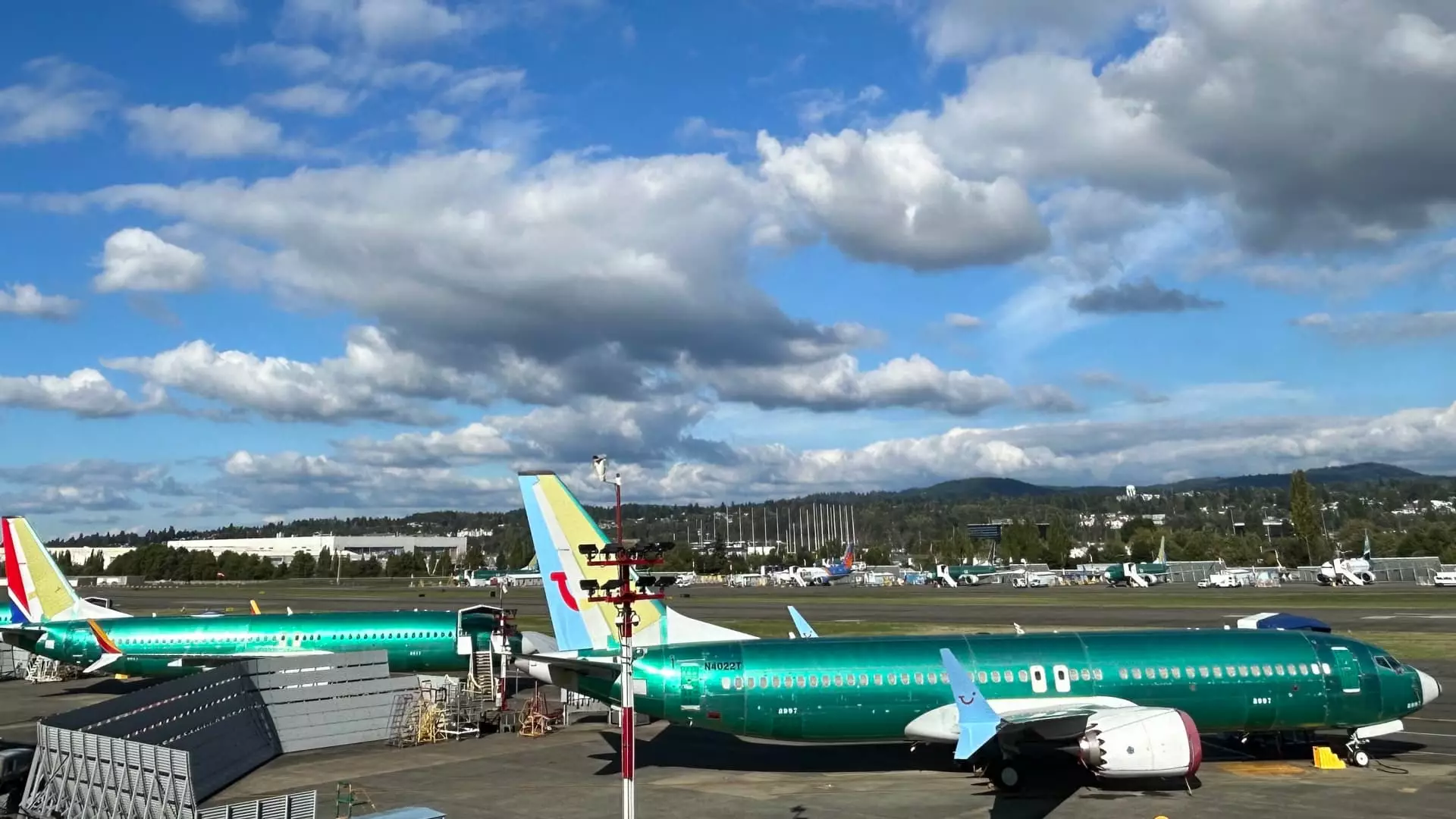The development of new Air Force One planes has become a saga of frustration and disappointment within the Trump administration. Originally, President Donald Trump negotiated a substantial $4 billion contract for two Boeing 747s to serve as the new presidential aircraft during his first term. However, the delivery timelines have stretched astonishingly, and the jets are now years behind schedule. This raises the question of whether they will ever be ready before the president’s term ends. With cost overruns exceeding $2 billion to date, the urgency for resolution has never been more palpable.
In a bid to expedite the manufacturing process, Trump has turned to his advisor Elon Musk, the CEO of SpaceX, for assistance. The collaboration between Musk and Boeing is viewed as a creative approach to overcome the persistent delays. Kelly Ortberg, Boeing’s chief executive, emphasized Musk’s role at a recent Barclays industrials conference, stating that he is instrumental in identifying and eliminating non-essential barriers to accelerate the delivery of Air Force One. While such innovative thinking may seem commendable on the surface, it also raises questions about Boeing’s managerial capabilities and the fundamental challenges it faces in delivering timely results.
As the consistent delays torment Trump, he has not been shy about considering alternatives. Recently, while aboard one of the current 747s, he hinted to reporters about the possibility of procuring a different aircraft if the situation does not improve. This exploration of options underscores not just the urgency of the matter but also a growing frustration with Boeing’s inability to meet the strict deadlines associated with such a high-profile contract. The exploration of alternatives indicates a break from traditional constraints, pushing the boundaries of innovation—but it also reflects a troubling gap in Boeing’s delivery promises.
It is noteworthy that the frustrations experienced by President Trump are not unique to the Air Force One project. Boeing has faced a series of setbacks with multiple airlines over extended wait times for aircraft deliveries, coinciding with a resurgence in the aviation industry following the pandemic. The company encountered several setbacks, including a near-catastrophic incident involving a door-plug blowout that delivered a further blow to its credibility, leading to a shakeup in leadership. These events have contributed to a climate of skepticism surrounding Boeing’s ability to manage its obligations effectively.
Despite this tumultuous backdrop, there are signs that Boeing may be slowly regaining its footing. Recent statements from executives at prominent airlines hint at a renewed optimism regarding Boeing’s commitments. For instance, United Airlines’ CFO Mike Leskinen expressed increased confidence that aircraft deliveries would resume on schedule, a sentiment echoed by Southwest Airlines’ CEO Bob Jordan. Their optimism signals a possible turnaround for the manufacturer under Ortberg’s leadership since he took the helm in August. However, skepticism remains, with many cautiously awaiting tangible results before they fully commit to this apparent resurgence.
As Boeing works through its myriad challenges, the onus is on the leadership to navigate these testing times effectively. The commitment to increasing production of the much sought-after 737 Max to 38 planes per month is a critical step forward. Yet, habitual delays and a failure to meet contractual obligations will continue to pose a threat to Boeing’s credibility. The high-stakes nature of projects like Air Force One necessitates not just innovation and collaboration but accountability, transparency, and a laser focus on fulfilling commitments.
The saga of Air Force One serves as a microcosm of Boeing’s broader struggles. President Trump’s frustrations underscore the urgency for effective solutions, while the collaboration with innovators like Elon Musk highlights the need for fresh approaches. Ultimately, the stakes are not merely about aircraft manufacturing; they represent a larger issue of public trust and efficiency in a company that plays a crucial role in the nation’s aviation landscape. The world will be watching closely to see if Boeing can navigate these turbulent skies successfully.

